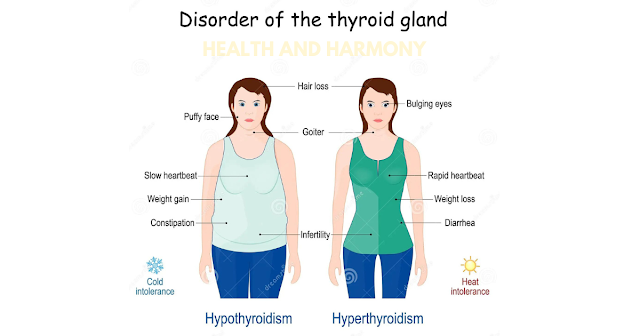Introduction to Thyroid Disorders: Understanding the Basics
In this blog, we'll provide you with a comprehensive introduction to thyroid disorders, their significance, and how they can affect your health.
Dr. Samrat Tote
2 min read


Introduction to Thyroid Disorders: Understanding the Basics
Namaste and welcome to my blog, "Health and Harmony"! Today, we are diving into the fascinating world of thyroid disorders. In this blog, we'll provide you with a comprehensive introduction to thyroid disorders, their significance, and how they can affect your health. So, let's get started!
Before we begin, I want to invite you to subscribe to my blog and hit the notification bell, so you don't miss out on any of our upcoming articles. We have an exciting series planned on understanding thyroid disorders and how to manage them effectively. Now, let's jump right in!
What and where is this thyroid gland
The thyroid gland, located in the front of your neck, plays a vital role in maintaining your body's metabolism and overall well-being. It produces hormones that regulate various functions such as heart rate, body temperature, and energy levels.
Unfortunately, sometimes things can go awry, leading to thyroid disorders. These disorders occur when the thyroid gland either produces too little or too much of the thyroid hormones. The two most common types of thyroid disorders are hypothyroidism and hyperthyroidism.
Hypothyroidism
Let's start with hypothyroidism, which occurs when the thyroid gland doesn't produce enough thyroid hormones. This can lead to a slowdown in your body's metabolism, causing symptoms such as fatigue, weight gain, sensitivity to cold, dry skin, and even depression. It's like your body is running on low energy.
Hypothyroidism is often caused by an autoimmune condition called Hashimoto's thyroiditis, where the body's immune system mistakenly attacks the thyroid gland. Other factors like iodine deficiency, certain medications, and radiation therapy can also contribute to hypothyroidism.
Hyperthyroidism
On the flip side, we have hyperthyroidism, which occurs when the thyroid gland produces an excess of thyroid hormones. This condition revs up your body's metabolism, causing symptoms like weight loss, increased heart rate, anxiety, irritability, and heat sensitivity. It's like your body is in overdrive.
Hyperthyroidism is commonly caused by an autoimmune condition called Graves' disease, where the immune system mistakenly stimulates the thyroid gland to produce too many hormones. Other causes can include thyroid nodules or inflammation of the thyroid gland.
Impact on Health
Both hypothyroidism and hyperthyroidism can have a significant impact on your overall health and well-being. They can affect various body systems, including the heart, bones, and reproductive health. That's why it's crucial to understand these disorders and seek appropriate medical care.
Thyroid disorders are more common than you might think, and they can occur in both men and women of all ages. That's why it's important to recognize the symptoms, get proper diagnosis and treatment, and make necessary lifestyle adjustments to manage these conditions effectively.
In our next article, we'll dive deeper into the fascinating world of the thyroid gland and its essential functions. We'll explore how this small but mighty gland regulates your metabolism and impacts your overall health. You won't want to miss it!
So, stay tuned to "Health and Harmony" for more insightful videos on thyroid disorders and holistic well-being. Remember to subscribe to our blog and hit the notification bell, so you're notified as soon as we release the next article.
Hypothyroidism: Let's start with hypothyroidism, which occurs when the thyroid gland doesn't produce enough thyroid hormones. In next post ............................
image courtesy google.com
